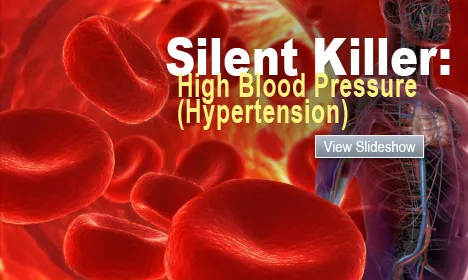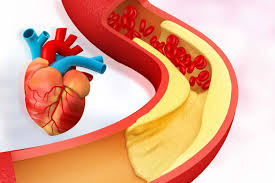Think about this: nearly half of all adults in America have high blood pressure. Many don’t even know it. This quiet condition, known as hypertension, often shows no signs. Yet, it steadily harms your body behind the scenes. It’s a leading cause of severe heart troubles. Your heart is always working. When your blood pressure stays high, your heart works too hard. This article will show you the real dangers of hypertension. We will explore its direct link to many heart problems. You will learn how it puts your heart at significant risk.
Understanding Hypertension: More Than Just a Number
What is Hypertension?
Blood pressure is the force of blood pushing against your artery walls. Your heart pumps blood out. This creates pressure. It has two numbers. The top number, systolic, shows pressure when your heart beats. The bottom number, diastolic, shows pressure when your heart rests.
Normal blood pressure usually sits below 120/80 mmHg. Elevated pressure means your numbers are a bit higher, but not yet high blood pressure. High blood pressure, or hypertension, starts at 130/80 mmHg or higher. Many things can cause it. Your genes play a part. So does your way of life. Eating too much salt, not moving enough, or carrying extra weight are significant risks. Age, smoking, and drinking too much alcohol also push your numbers up.
The Mechanics of Damage: How High Pressure Harms Arteries
Constant high pressure puts a lot of stress on your arteries. These are the tubes that carry blood. Over time, your artery walls can get stiff and less stretchy. Imagine a garden hose with too much water pressure; it wears down quicker. This damage makes a perfect spot for fatty stuff to stick.
This sticky buildup is called plaque. As plaque grows, your arteries get narrow. This process is known as atherosclerosis. It makes it harder for blood to flow freely. High blood pressure also causes swelling inside your arteries. This inflammation makes the damage worse. It’s like a slow, silent attack on your blood vessels.
The Direct Link: Hypertension’s Impact on Your Heart
Coronary Artery Disease (CAD)
When plaque builds up in the arteries around your heart, it’s called coronary artery disease. These narrowed tubes stop your heart muscle from getting enough blood. Your heart works hard to push blood through these tight spots. This can cause chest pain, called angina. It feels like tightness or pressure.
If a blood clot blocks one of these narrowed arteries completely, part of your heart muscle dies. That’s a heart attack. A doctor might tell you that high blood pressure is a key factor here. It sets the stage for plaque to form and grow, which can lead to serious heart problems.
Heart Failure
Your heart is a strong muscle. But with high blood pressure, it works against a much greater force. Over time, this makes your heart muscle bigger and thicker. It’s like a bodybuilder’s arm, but it weakens the heart’s ability to pump blood. The heart gets weaker.
Eventually, your heart cannot pump enough blood to meet your body’s needs. This is called heart failure. It does not mean your heart stops. It means it’s not working as well as it should. Roughly half of all heart failure cases are tied to high blood pressure that wasn’t controlled.
Other Cardiovascular Complications
High blood pressure does not just affect your heart directly. It also harms blood vessels in your brain. This raises your risk of having a stroke. A stroke happens when part of your brain does not get enough blood. This can lead to lasting brain damage.
Your legs and feet can suffer too. When arteries in your limbs narrow, it’s called peripheral artery disease, or PAD. This can cause pain in your legs when you walk. Consider someone like Mr. Johnson. He never took his blood pressure seriously. Later, he suffered a stroke that left him unable to speak clearly. His doctors said his long-term high blood pressure was the main reason.
Managing Hypertension: Taking Control of Your Heart Health
Lifestyle Modifications: The Foundation of Control
Small changes can make a huge difference in controlling high blood pressure. Your daily habits are very important. Eating well is key.
- Dietary Changes:
- The DASH diet helps a lot. It focuses on fruits, veggies, whole grains, and lean protein. It reduces consumption of red meat, sweets, and unhealthy fats.
- Lower your sodium intake. Too much salt causes your body to retain water, which in turn raises blood pressure.
- Eat foods rich in potassium and magnesium. These minerals help balance sodium. Think bananas, spinach, and avocados.
- Regular Exercise:
- Aim for at least 150 minutes of moderate exercise each week. Brisk walking or swimming are good choices.
- Add strength training a couple of times a week. This helps build muscle.
- Being consistent with your workouts is more important than doing a lot all at once.
- Weight Management: Losing even a few pounds can lower your blood pressure. Extra weight makes your heart work harder.
- Stress Reduction: Find ways to calm your mind. Try deep breathing, meditation, or yoga. Getting enough sleep also helps your body manage stress.
- Limiting Alcohol and Quitting Smoking: Both alcohol and tobacco raise blood pressure. Quitting these habits greatly improves your heart health.
Medical Interventions: When Lifestyle Isn’t Enough
Sometimes, lifestyle changes are not enough to bring your blood pressure down. That’s when your doctor might suggest medicine.
- Medication Overview:
- Many types of drugs help lower blood pressure. These include diuretics, which help your body get rid of salt and water. ACE inhibitors relax blood vessels. Beta-blockers make your heart beat slower and with less force.
- Taking your medicine exactly as your doctor tells you is very important. Do not skip doses or stop taking them without talking to your doctor.
- Regular Monitoring:
- Check your blood pressure at home often. Keep a record of your readings. This helps you and your doctor see patterns.
- Regular visits to your doctor are a must. They can adjust your treatment plan.
- Talk to your doctor about your blood pressure numbers today. They can help you create a plan to keep your heart healthy.
Conclusion: Prioritize Your Blood Pressure for a Healthier Heart
High blood pressure is a silent danger. It dramatically increases your risk for serious heart problems. These include heart attacks, heart failure, and stroke. But you can take charge. Knowing your numbers is the first step. Taking action to manage your blood pressure can save your heart. Make healthy choices part of your daily life. Work closely with your healthcare team. Your heart will thank you for it. Managing hypertension is within your reach, and it’s key for a long, healthy life.
Discover more from Healthinfo24.com
Subscribe to get the latest posts sent to your email.



Marc1924
https://shorturl.fm/fAqGn